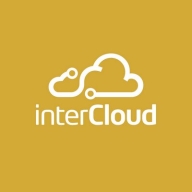


Find out what your peers are saying about Microsoft, Amazon Web Services (AWS), Red Hat and others in PaaS Clouds.
| Product | Market Share (%) |
|---|---|
| Red Hat OpenShift | 11.6% |
| Heroku | 3.4% |
| interCloud | 0.1% |
| Other | 84.9% |


| Company Size | Count |
|---|---|
| Small Business | 23 |
| Midsize Enterprise | 2 |
| Large Enterprise | 3 |
| Company Size | Count |
|---|---|
| Small Business | 17 |
| Midsize Enterprise | 4 |
| Large Enterprise | 40 |
Established in 2007, Heroku is a cloud application platform providing a streamlined, efficient place for web app developers to create and deploy their applications. Heroku is designed to maximize developer productivity. With the entire web application development process available on the Herokucloud, creating and rolling out web apps has been made more efficient, convenient, and cost-effective than ever before.
InterCloud enables enterprises to take control over their cloud applications and deliver corporate data anywhere, securely and efficiently. The Cloud Delivery Platform is an enterprise-grade solution enabling IT organizations to shape the right connectivity for the cloud while addressing security, performance and flexibility issues. InterCloud is used by advanced cloud adopters leveraging our platform to deliver cloud services to hundreds of thousands of users globally.
Red Hat OpenShift offers a robust, scalable platform with strong security and automation, suitable for container orchestration, application deployment, and microservices architecture.
Designed to modernize applications by transitioning from legacy systems to cloud-native environments, Red Hat OpenShift provides powerful CI/CD integration and Kubernetes compatibility. Its security features, multi-cloud support, and source-to-image functionality enhance deployment flexibility. While the GUI offers user-friendly navigation, users benefit from its cloud-agnostic nature and efficient lifecycle management. However, improvements are needed in documentation, configuration complexity, and integration with third-party platforms. Pricing and high resource demands can also be challenging for wider adoption.
What are the key features of Red Hat OpenShift?Red Hat OpenShift is strategically implemented for diverse industries focusing on container orchestration and application modernization. Organizations leverage it for migrating applications to cloud-native environments and managing CI/CD pipelines. Its functionality facilitates efficient resource management and microservices architecture adoption, supporting enterprise-level DevOps practices. Users employ it across cloud and on-premises platforms to drive performance improvements.